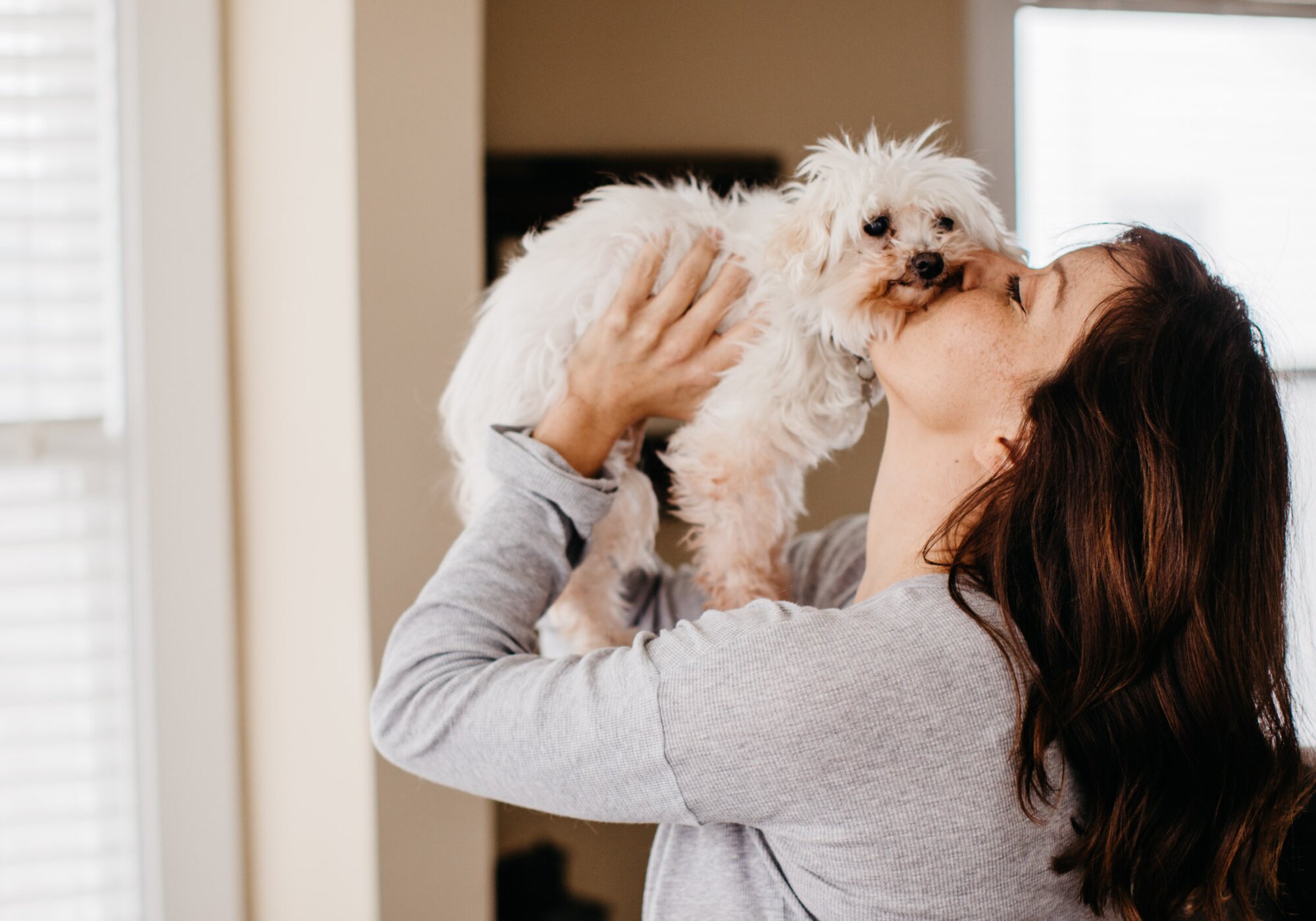According to a report by the American Pet Products Association, 82 million US households own a pet. To fellow pet parents, this comes as no surprise — pet ownership is magical.
Yet, while there are endless benefits to being a pet parent, it's important to provide them with the best care possible to keep them happy and healthy. This includes vet checkups.
So how often should your dog visit your vet, what does a checkup entail, and why does it matter? Keep reading to find out.
What is a dog checkup
Every checkup depends on your dog’s age, breed, and sex. In their first exam, your vet will look at your pet’s health history, vital signs, and health problems to put together a better picture of their well-being.
Here's what to expect before, during, and after a physical examination.
Before the examination
A general physical exam usually involves looking at your dog's medical history before screening your pet. This could include:
- Medical history
- Diet (like food and water intake)
- Eating habits or allergies
- Vaccinations
- Lifestyle and environment
- Reproduction
- Medications or surgeries
- Recent injuries
During the examination
Along with examining your pet head-to-toe, your vet will look at several vital signs to test your furry friend's wellness.
These may include:
- General appearance
- Body temperature
- Body condition (weight)
- Heart rate and pulse
- Respiratory rate
- Attentiveness
- Posture
- Signs of dehydration
Eyes and vision
To avoid any infections in your dog's eyes your vet may search for things like discharge, inflammation, redness, irregular pupil size, or unusual squinting. These signs will help your vet determine if your pet is suffering from possible corneal ulcers or untreated glaucoma.
Ears and hearing
Bacterial and yeast infections are common in both dogs and cats — which can lead to inflammation of the eardrums and cause significant pain and damage.
Your vet may look for ear mites or other signs of disease. In severe cases, your vet may suggest surgery to remove any issues.
Heart and lungs
Your veterinarian will use a stethoscope to check your dog’s heart rate and breathing patterns. They'll also look for abnormal heartbeats or sounds, strained breathing, or fluid in your pet's chest.
These are important to look for since these indicators are often suppressed by coughing, wheezing, or lethargy.
Stomach
Veterinarians may inspect your dog’s internal organs and check their size and location for displacement or bruising. They'll also check for the presence of fluid, feces, masses, and signs of pain. This is usually detected by restlessness, diarrhea, or vomiting.
Mouth and teeth
A clean and clear mouth are good signs of a healthy pooch. Excess tartar build-up can become a big issue, along with inflamed or red gums. These symptoms may mean gingivitis or growing bacteria that are harmful to other organs and their function.
Skin, coat, and nails
Examining the skin and fur coat of your pet is important for detecting several health concerns.
Vets may look for lumps and bumps, parasites (like fleas or ticks), excessive matting, and hair loss. In extreme cases, excessive shedding or hair loss may also mean malnutrition, infestation, hormonal disorders, and skin inflammation.
Muscles and their function
Veterinarians will want to inspect your pup's muscles and their mobility, range of motion, and pain to determine any muscle-related illnesses.
Abnormalities like instability, swelling, and bone spurs are typical signs. This is important in older or senior dogs they can find a remedy to improve or manage their pain.
After the examination
At the end of the examination, your veterinarian may suggest other clinical testing such as:
- Urine or fecal sample
- Blood work
- Tests for heartworm
- Dental scans
- X-rays
These tests help your vet detect early signs of disease or pain. Doing so boosts your pet’s life expectancy and quality of life.
When should my dog get a checkup
Being a good pet parent means taking care of your dog when things go wrong and preventing them from happening in the future.
Keeping up with your pet’s health checkups, especially during their first year, is important for ensuring they stay healthy, grow, and avoid illness or disease.
Outside of annual checkups, here are a few times your dog should visit your veterinarian:
- Changes in behavior
- Injury, limpness, or difficulty walking
- Excessive vomiting, diarrhea, bloody stool
- Lack of appetite or water intake
Experts recommend at least one examination per year. This is often referred to as preventative care. Prevention empowers pet parents to protect their dogs from disease before they occur with simple lifestyle changes.
How often do dogs need checkups
Puppies, teenagers, and senior dogs can all benefit from routine visits to the vet. Whether this is a new dog or one that's been in the family for years there are different factors that determine how often your pet should receive an examination.
Factors that determine checkup frequency:
- Breed
- Species
- Age
- Health condition
Puppies need annual visits every year for their first year to help identify any potential signs of severe health issues. Older dogs need to visit more to screen for and diagnose any persistent or life-threatening diseases.
4 myths about dog checkups
No matter the reason for visiting your vet, routine or annual checkups can seem scary, expensive, and overwhelming. But, they don't have to be traumatic for your pets. Here are 4 myths about wellness checks and tips for ensuring your checkups are stress-free.
1. Routine checkups are expensive.
If you've ever had a pet emergency you know how quickly expenses can add up. But, routine visits could actually help you save money in the long run.
The average vet visit costs around $45 to $55. Scheduling regular veterinary services can help your vet detect any issues early on, which can decrease costs and chances of illness.
2. Routine checkups are always stressful.
After one or two traumatic events, your pets may really start to stress out about visiting the vet. In fact, some pets (especially your cat) may begin to associate leaving the house with a veterinary visit and make it difficult to get them there.
There are a few things you can do to make sure that each appointment goes smoothly and visits are limited.
First, ensure your pets are protected with a monthly flea and tick treatment and heartworm prevention. Second, make sure your pets receive regular testing and their vaccines are up to date.
3. You can't prepare your pet for wellness exams.
Certain parts of your dog's physical examination can be difficult for your vet to check easily. Typically, your dog's ears and feet can be challenging to examine.
But, there are a few exercises you can practice to decrease anxiety and trauma.
Start by distracting your pet with some positive associations like food, treats, and toys. Then, have friends and family members practice inspecting and touching various areas of your animal like their paws, ears, and teeth.
4. Wellness exams always include vaccines.
Each appointment with your vet may be different from the next. Some may include annual dog vaccines. But, routine exams typically entail a quick check-in with your furry friend.
You might be wondering, "what shots does my dog need annually?" The most common annual shots for dogs and cats include:
- Rabies
- Distemper
- Parvovirus
- Adenovirus
- Parainfluenza
- Bordetella bronchiseptica
- Leptospirosis
Giving your dog their best life means keeping up on vaccinations, practicing preventative care, and making (at least) annual trips to your veterinarian.
If you're unsure about what services your vet provides or how to set up routine checkups, contact your local veterinarian. After a few questions, you’ll be on your way to a successful checkup.


